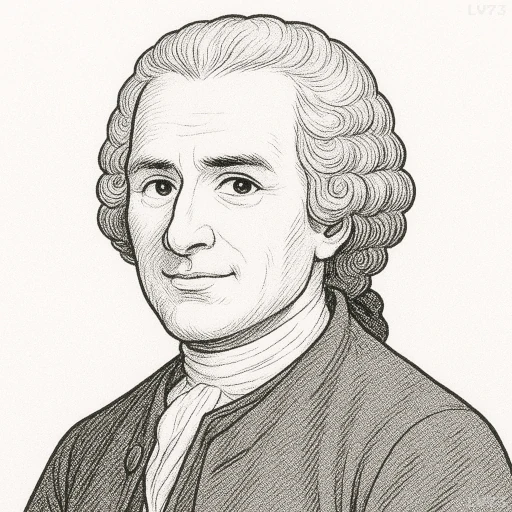“You forget that the fruits belong to all and that the land belongs to no one.”

- June 28, 1712 – July 2, 1778
- Born in Geneva
- Philosopher, political philosopher, writer, composer
table of contents
Quote
“You forget that the fruits belong to all and that the land belongs to no one.”
Explanation
In this quote, Jean-Jacques Rousseau critiques the concept of private property and its implications for society. He argues that the natural resources of the world, symbolized by fruits and land, should be shared by all humans, not claimed by individuals. Rousseau is challenging the prevailing notion of private ownership, which he believed led to inequality, exploitation, and corruption. His philosophy, as expressed in The Social Contract, posits that the idea of property ownership is a social construct that did not exist in the state of nature. In his view, the original human condition was one of equality, where resources were not monopolized but shared collectively for the benefit of all.
Historically, Rousseau’s ideas were revolutionary and radical, especially in the context of 18th-century Europe, where the rise of the bourgeoisie and the expansion of capitalism were creating vast wealth disparities. His thoughts on the communal nature of resources were not just philosophical; they also had a political and moral undertone, advocating for a society in which justice and equality were prioritized over private accumulation of wealth. Rousseau’s call for a collective ownership of the earth’s resources was deeply connected to his belief that private property was a source of social conflict and alienation.
In modern times, Rousseau’s quote resonates in discussions around land ownership, economic inequality, and the environmental movement. Issues such as climate change, the privatization of natural resources, and the growing divide between the wealthy and the poor bring his ideas into sharp focus. For example, in contemporary debates about land reform or access to clean water, Rousseau’s critique of property ownership invites reflection on the ethics of resource allocation and the idea that certain natural goods, like air, water, and food, should not be subject to private control but shared as common heritage. His quote remains a poignant reminder of the tensions between individual rights and the common good.
Would you like to share your impressions or related stories about this quote in the comments section?



